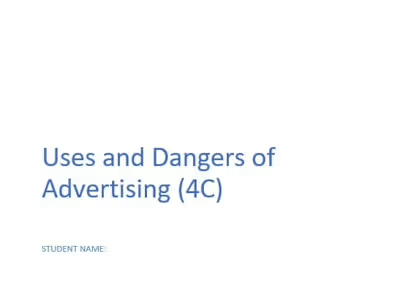ETHICAL AND SUSTAINABLE BUSINESS PRACTICES
Introduction
Ways of doing business
have been under development since the beginning of human history. From barter systems
to cryptocurrency, we have observed enormous changes in trade systems. Ethical
and environmentally responsible company practices are becoming essential. In this
era of awareness, such activities are compulsory. Ethical practices incorporate
moral values into commercial operations to build confidence and reduce risks,
whereas sustainable practices emphasize appropriate resource and environmental
use. In-depth research of these topics shows how these behaviors shape the
future of any company. We find a solid case for integrating sustainable
practices into mainstream company operations by examining their benefits,
long-term profitability, brand image, and alignment with global sustainability
goals. (Rainey, 2010)
Over the last
few decades, global consideration of corporate ethics and sustainability has been
developed. Many firms are adopting green supply chain management. Consumers,
investors, and regulators are pressuring companies to be ethical and
sustainable. Many researches and experiments have been conducted to minimize
polluted and intoxicated outcomes of manufacturing plants. Wastage is being minimized
to maintain a green environment. Due to possible corporate illegality,
environmental degradation, and social inequality, traditional business
institutions are being reexamined. Due to global climate change and resource
depletion, businesses realize the importance of matching their plans with
ethical and sustainable ideals. These changing conditions make studying the
transformative power of honest and environmentally responsible corporate
activities crucial. (Zimmerli, 2007)
Ethical methods
build trust and prevent firms from legal and reputational issues, while
sustainable practices conserve resources and the environment. The environment
is a great gift provided by nature. It should be preserved for future generations.
Wastage of resources may have complicated outcomes for upcoming generations. Many
practices, i.e., environmental ethics, preservation and conservation, are being
implemented for sustainable business practices. The waste outcome is optimised
in new businesses to develop a green environment.
Example:
Starbucks, a multinational coffee business, buys only ethically produced coffee
beans and ensures farmers are paid fairly and have a safe workplace. This
matches consumer attitudes and decreases the likelihood of boycotting the brand
for unethical sources. Patagonia's "Worn Wear" campaign encourages
people to repair and recycle items, extending their lifecycle and promoting
sustainable practices. Because of this, the company has a loyal customer base
that values its textile waste reduction initiatives.
Ethical methods
build integrity and stakeholder trust. This trust leads to consumer loyalty and
investor confidence, reducing the danger of financial losses from negative news
or legal actions. Sustainable solutions reduce trash and increase operating efficiency,
lowering costs and increasing revenues.
Ethical and
sustainable practices work together to create a positive cycle that benefits
businesses and society. (Morioka, 2017)
Long-term
success comes from ethical and sustainable business practices that optimize
operational efficiency, capitalize on customer loyalty, and mitigate risks.
Most of the new customers are now product conscious. They try to buy environment-friendly
products and being developed using green supply chains. Many products have
changed their way of representation due to the implementation of sustainable
practices. Paper straws and paper shopping bags are being provided with
products to reduce the use of plastic shopping bags that are not environment
friendly.
Evidence &
Examples: Unilever's Sustainable Living Plan increased sustainable product
sales by 10%. Customers are willing to pay more for products that reflect their
ideals. Energy-saving technologies and waste reduction approaches reduce
corporate operations' environmental effects and save money. Walmart's goal to
get all its electricity from renewable sources by 2035 shows how sustainable
business practices can reduce long-term costs.
Customers that
respect integrity are loyal to ethical businesses, which increases sales and
repeat business. Efficiency improvements from sustainable practices also affect
the bottom line. Cost savings through resource reduction and operations
streamlining result from these benefits.
Organizations wishing
to expand and profit long-term should priorities ethical and sustainable
practices for their financial benefits. (Doorasamy, 2016)
Ethical and
sustainable practices improve brand image and global sustainability goals by
generating a positive public impression.
Evidence and
examples: Tesla's commitment to electric vehicles and renewable energy
solutions makes it an innovator and helps reduce carbon emissions. This is
shown by the company's carbon emission reduction promise. This resonates with
ecologically conscious consumers and garners positive media coverage, boosting
the brand's reputation. Microsoft's carbon-negative pledge and Walmart's
Project Gigaton, which minimizes emissions across their supply chains, are
great examples of corporations' contributions to global sustainability.
Media coverage
and public support for ethical business activities boost a company's brand
image and goodwill. Aligning with global sustainability programs benefits
society and promotes corporations as responsible environmental guardians,
attracting partners and consumers with similar ideals.
Ethical and
ecologically responsible business practices boost brand reputation and make the
world more sustainable and connected. (Galpin, 2015)
The study of
sustainable and ethical business practices found that these notions affect
modern business. As the dialogue has shown, companies must incorporate ethics
and sustainability into their daily operations. The reciprocal nature of these
actions shows that their aggregate impact is far-reaching and transformative.
Ethical measures
like trust-building and risk reduction and sustainability strategies like
resource efficiency and brand development enhance firms' pragmatic benefits.
These benefits demonstrate the benefits of ethical business operations. This
essay's evidence-based approach proves that ethical and sustainable activities
can improve society and the environment. Starbucks, Unilever, Patagonia, and
Tesla are examples in this essay.
In the future,
this discussion will have significant consequences. Ethical and ecologically
responsible business practices are now essential to economic success and global
well-being. Adhering to these ideals is moral and strategic. Corporations can
better align themselves with society's ethical goals and create a more
harmonious business-world relationship.
In conclusion,
ethical and environmentally responsible corporate practices can shift
paradigms, as this essay showed. Businesses are changing the paradigm to one in
which ethics, sustainability, and social progress coexist and grow trade. This
transformation is happening as these techniques become standard.
Doorasamy, M. a. B. K., 2016.
Compromising long-term sustainability for short-term profit maximization:
Unethical business practice.. Foundations of Management, , pp. 8(1),
pp.79-92..
Galpin, T.
W. J. a. B. G., 2015. Is your sustainability strategy sustainable? Creating a
culture of sustainability.. Corporate Governance,, pp. 15(1),
pp.1-17..
Morioka,
S. B. I. E. S. a. C. M., 2017. Transforming sustainability challenges into
competitive advantage: Multiple case studies kaleidoscope converging into
sustainable business models.. Journal of cleaner production,, pp. 167,
pp.723-738.
Rainey,
D., 2010. Sustainable business development: inventing the future through
strategy, innovation, and leadership.. s.l.:Cambridge university press..
Zimmerli,
W., 2007. Corporate ethics and corporate governance.. s.l.:Springer..
Like this project
Posted Sep 2, 2023
The study found that Ethical and sustainable business practices affect modern business.
Likes
0
Views
13




